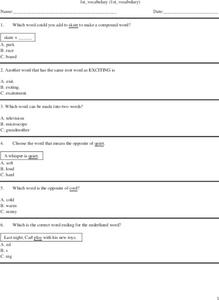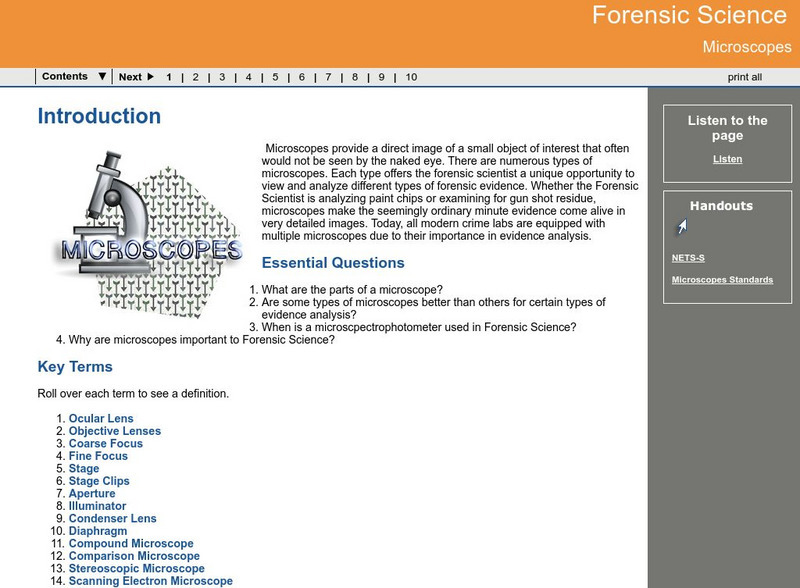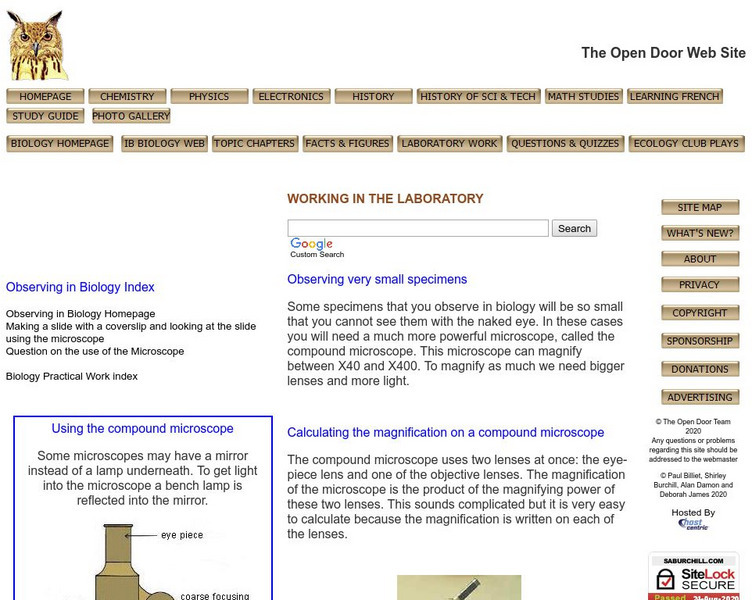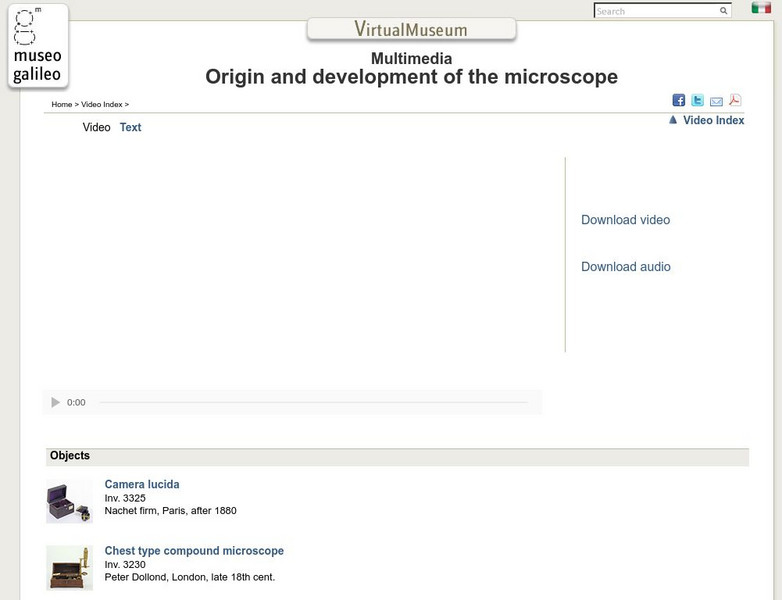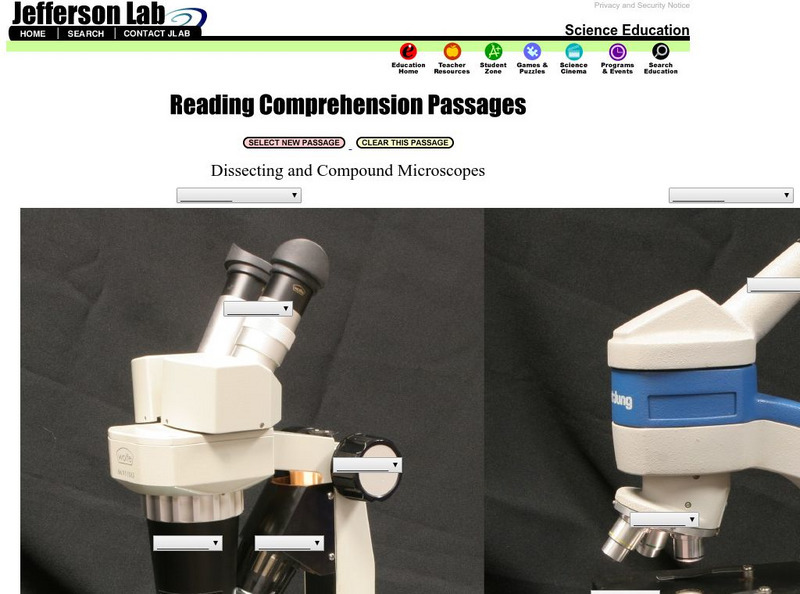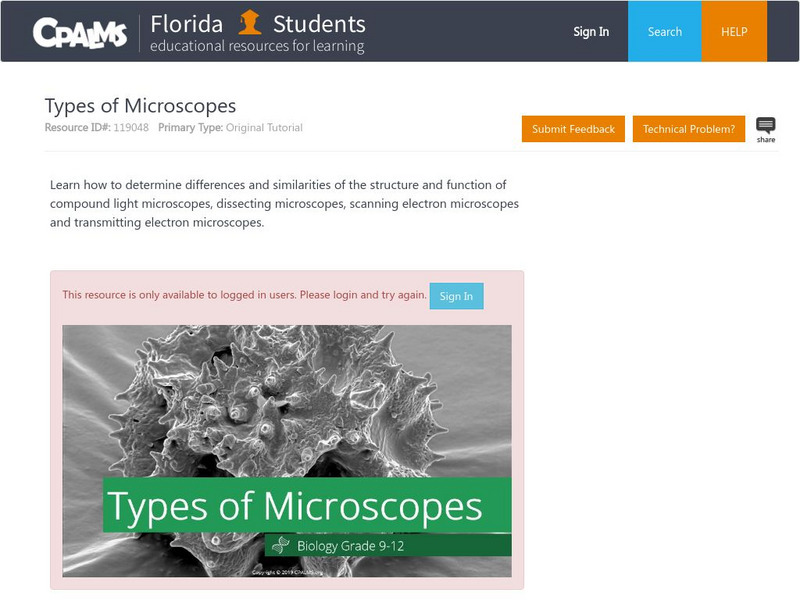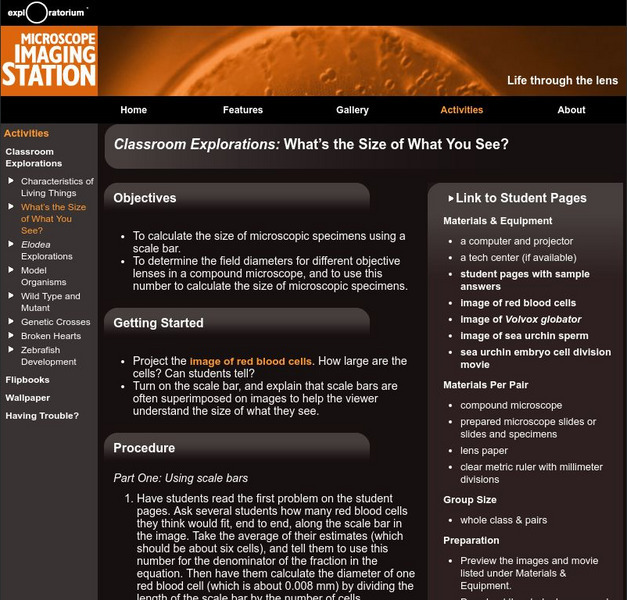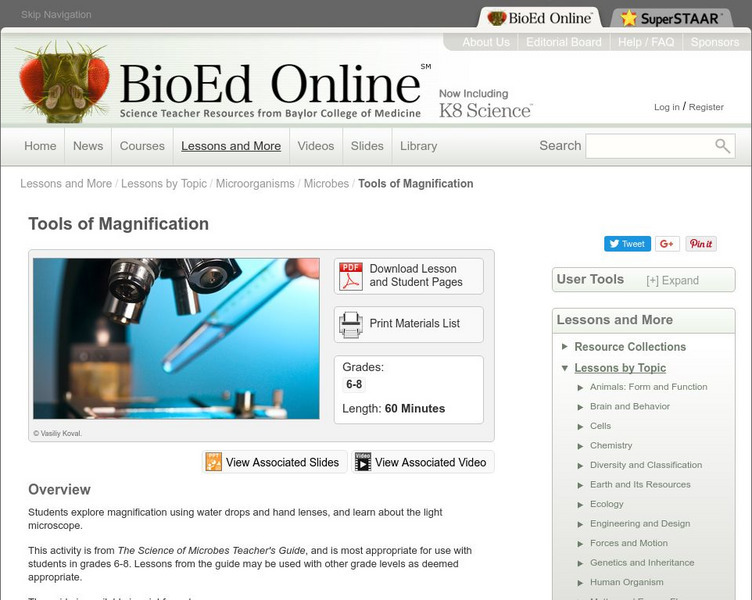Curated OER
Notorious Confusables
In this similar words worksheet, students complete a 10 question multiple choice on-line interactive quiz about words that are easily confused. Students choose the best word to complete each sentence from 2 similar words. Example:...
Curated OER
1st Grade Vocabulary
In this vocabulary words worksheet, 1st graders answer multiple choice questions about opposites of words, root words, meaning of words, and more. Students complete 15 questions.
Curated OER
There Are Algae in Your House!
Young scholars demonstrate that, although we sometimes can neither smell nor taste them, many ingredients in our foods and household products come from the sea. They also investigate food eat to determine algae derivatives they contain.
Curated OER
Using Ion Exchange Chromatography to Separate Proteins
Students explore protein purification by separating a positively charged molecule, lysozyme, from a negatively charged molecule, albumin, at neutral pH using ion exchange chromatography.
Science Struck
Science Struck: Compound Microscope: Basics, Functionality, and Uses
Explains what a compound microscope is, the different parts, how it works, and what it is used for.
Other
University of Delaware: Virtual Compound Microscope
This virtual microscope is ideal for learning how to properly use a microscope. Users can turn knobs and dials, throw switches, move levers, change lenses, select a specimen, and adjust oculars. Watch the seven minute video for an...
Science Struck
Science Struck: The Compound Microscope Parts and Its Functions
Goes through the different structural and optical parts of a compound microscope and how a compound microscope functions.
Georgia Department of Education
Ga Virtual Learning: Microscopes and Forensic Science
In this comprehensive interactive tutorial you will learn about the parts of a microscope and how some types of microscopes are better than others for certain types of evidence analysis within the field of Forensic Science. A...
Science Struck
Science Struck: Dissecting Microscope vs. Compound Microscope
A brief overview of the features and functions of the two main types of microscopes.
PBS
Pbs Learning Media: Microscope Activity
Explore the parts of a compound microscope and view cells through this interactive lesson.
Science Struck
Science Struck: A Study of the Microscope and Its Functions
Uses illustrations with labels to complement a detailed examination of the parts and functions of a light microscope and an electron microscope.
Other
Microscope Master: How to Use a Microscope
This website gives detailed step-by-step instructions on how to use and adjust a compound microscope.
Open Door Team
Open Door Web Site: Biology: Calculating Magnification on a Compound Microscope
Learn how to calculate the total magnification of a microscope on this concise site. Links to making a slide, questions on the use of the microscope, and other related microscope topics are included on this site.
Institute and Museum of the History of Science
Museo Galileo: Multimedia: Origin and Development of the Microscope
A video describing the development of the light microscope, from the compound microscopes that consisted of two or more lenses to the simple microscope, which contained only one lens.
Thomas Jefferson National Accelerator Facility
Jefferson Lab: Reading Passages: Disecting and Compound Microscopes
Read and fill in the blanks on these pictures of microscopes with the correct part names. Each blank has a dropdown menu with choices. When you finish, click CHECK MY ANSWERS. If you pick a wrong answer, the right answer will be...
South Carolina Educational Television
Know It All: Microscope | Hobby Shop
In this activity, students use a virtual biology lab to perform investigations and learn lab procedures using compound and dissecting microscopes to look at a variety of animal and plant cells.
Biology Corner
Biology Corner: Microscope Parts Quiz
This interactive diagram helps students memorize the parts of a light microscope.
University of Maryland
Optics Highlights: The Microscope
Part of an anecdotal history of optics and the study of light. Extremely thorough treatment of the scientific findings and developments which led to the invention and refinement of the microscope. Includes a short biographical sketch and...
CPALMS
Florida State University Cpalms: Florida Students: Types of Microscopes
A program will help students determine differences and similarities of the structure and function of compound light microscopes, dissecting microscopes, scanning electron microscopes and transmitting electron microscopes.
Other
Scimat: Foods Under the Microscope
A technical site that describes different types of microscopes and delves into the chemical makeup of milk, yogurt, various various types of microorganisms. Impressive pictures supplement the text. Links to images of microorganisms.
Curated OER
A Compound Microscope
Learn how to calculate the total magnification of a microscope on this concise site. Links to making a slide, questions on the use of the microscope, and other related microscope topics are included on this site.
Other
Southern Microscope Service's Home Page
A series of pages explaining how microscopes work, the parts of a microscopes, the techniques of using a microscope, and other useful information.
Exploratorium
Exploratorium: Microscope Imaging Station: What's the Size of What You See?
In this instructional activity, you use microscope images to show how to use scale bars to measure very small things.
BioEd Online
Bio Ed Online: The Science of Microbes: Tools of Magnification
The invention of magnifiers that allow us to see things that are otherwise invisible to us has revolutionized science. In this lesson, students use several types of magnifiers to investigate magnification, and record their observations....



